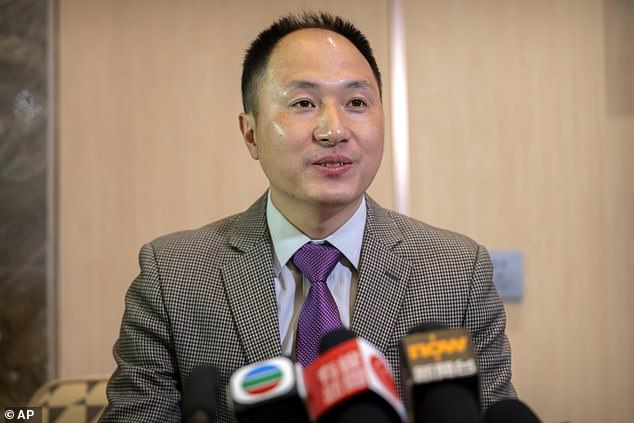
Title: "Defying Ethics: Why I Genetically Edited Babies and Would Risk Prison Again"
He Jiankui: The Disgraced Scientist Pushing Gene-Editing “For All”
(Include image: He Jiankui at a conference with caption: "He announced the first gene-edited babies in 2018, sparking global outrage.")
In 2019, Chinese scientist He Jiankui became the first person jailed for genetically engineering humans. His crime? Creating the world’s first gene-edited babies—twins Lulu and Nana—using CRISPR technology to allegedly make them HIV-resistant. Released in 2022, He remains unrepentant, telling MailOnline he’d repeat the experiment and aims to make embryo editing "as popular as the iPhone."
The Controversial Experiment
Using sperm and eggs from HIV-positive parents, He edited the CCR5 gene in embryos to block HIV transmission. Three children were born, including a third child later revealed. Critics blasted the experiment as reckless: the procedure was unnecessary (HIV transmission can be prevented with standard treatments) and risked unknown genetic side effects. Scientists like Dr. Kathy Niakan called it "unethical and dangerous," while the global research community accused him of undermining trust in gene-editing science.
(Include image: CRISPR process diagram with caption: "He used CRISPR-Cas9 to alter embryos, a method still deemed unsafe for humans.")
Jail Time and Unshaken Ambition
He served three years in prison and paid a $430,000 fine. Yet, he claims the children are healthy and the families "thankful." Undeterred, he’s now planning a U.S.-based lab in Houston, Texas, to research gene therapies for a rare muscular disease, funded privately and via a cryptocurrency named GENE. His goal? Democratize gene editing: "A few thousand dollars per baby—most families can afford it."
Ethical Outcry and Hidden Risks
He’s been widely condemned for bypassing ethical reviews, forging documents, and misleading doctors. Experts argue his actions prioritized fame over safety. "He took trust in science back to the Stone Age," said geneticist Darren Griffin. Despite his claims, there’s no independent verification of the children’s health, and the long-term effects of CRISPR edits remain unknown.
(Include image: Baby feet with DNA strand overlay; caption: "Critics warn unknown genetic risks could impact future generations.")
Motivation: Nobel Dreams and iPhone-Scale Ambition
He openly admits craving fame and a Nobel Prize, comparing himself to IVF pioneer Robert Edwards. "When we have five million gene-edited babies, they’ll give me the Prize," he says. While he insists his focus is curing diseases, his rhetoric leans into grandeur: "I want my name in history."
Future Plans—and Obstacles
Despite enthusiasm, He faces hurdles: China confiscated his passport, research partners avoid him, and funding is scarce. His new lab’s details are secretive, citing safety fears after an alleged attack. Critics question his secrecy and funding via cryptocurrency, wary of repeating past deceit.
(Include image: Laboratory equipment; caption: "He’s launching a U.S. lab but refuses to disclose collaborators or disease targets.")
Conclusion: A Divisive Legacy
He Jiankui’s story splits opinion: a visionary to some, a rogue to most. As he pushes for a future where gene editing is commonplace, the scientific community remains torn between innovation and ethics. Whether he’ll achieve redemption—or further infamy—depends on balancing ambition with transparency.
Key Facts
- Who is He Jiankui? Jailed for creating gene-edited babies; now seeks U.S. lab for embryo research.
- Controversy: Ignored ethics, forged documents, risks unknown genetic harm.
- Goal: Edit embryos to prevent diseases, priced "like 10 iPhones."
- Motives: Mixes altruism with Nobel Prize ambitions and desire for fame.
(Include image: Nobel Prize medal; caption: "He dreams of a Nobel, but critics argue his methods are irredeemable.")
Word count: ~600


